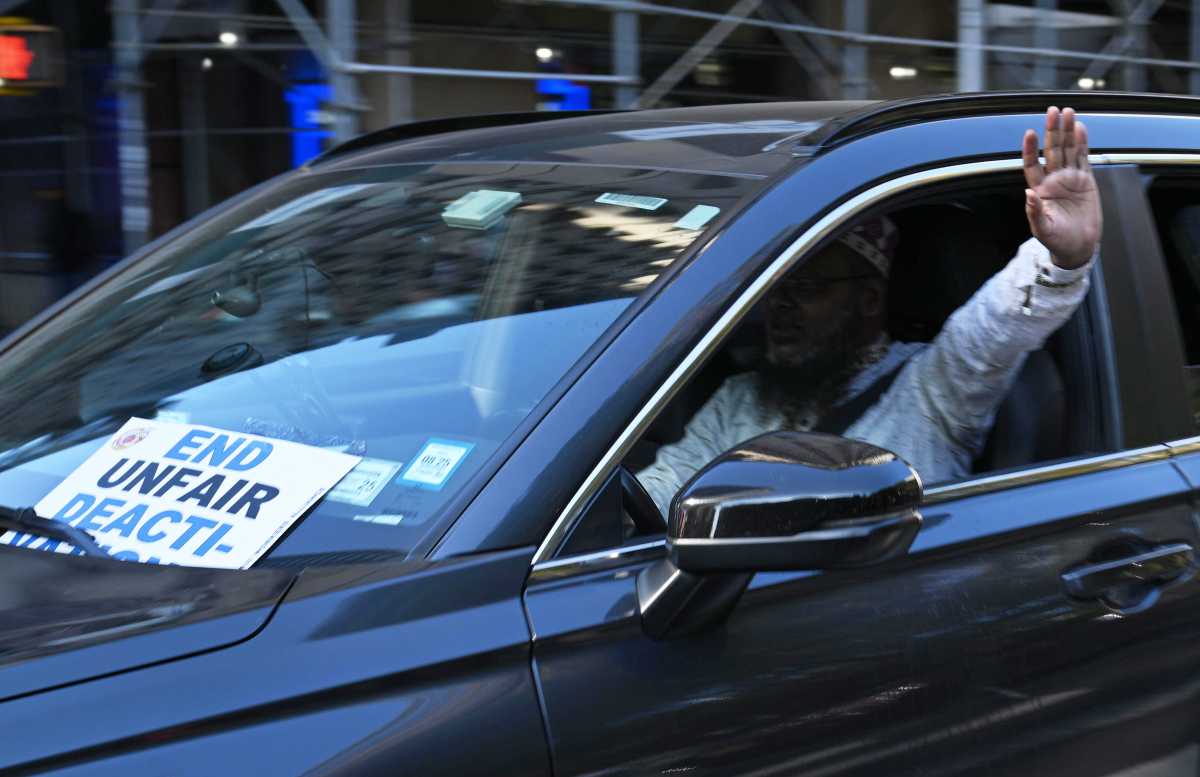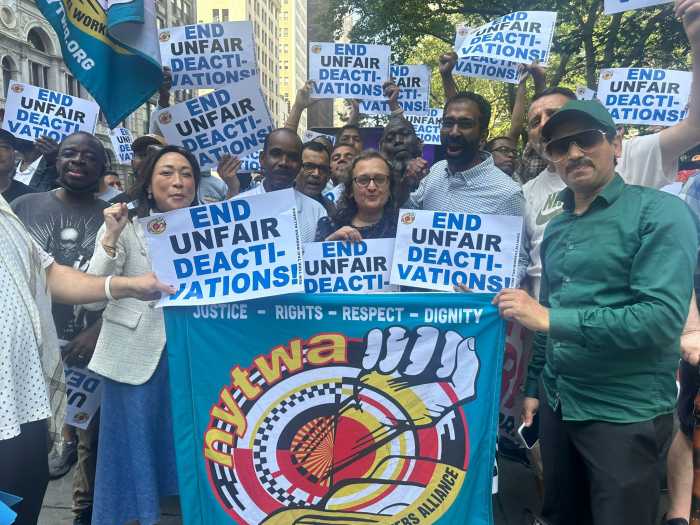Rideshare giant Lyft is protesting a NYC Council bill that would prevent it from “deactivating” its drivers for any reason — including those with shaky safety records, company officials alleged.
Jerry Golden, chief policy officer at Lyft, sent a scathing letter to city lawmakers on Sept. 22, expressing the company’s “serious concerns” about Intro. 276, a bill that would prohibit rideshare bigwigs from deactivating — essentially firing — for-hire drivers without just cause.
Golden charged that the bill, as it is, undermines public safety and puts New Yorkers at risk, especially since drivers know personal information about passengers, including pick-up and drop-off points that are often places of residence or work.
He added that the bill’s 14-day notice period would prevent rideshare platforms from “promptly” removing drivers who have been reported as engaging in unsafe conduct, which could be anything ranging from reckless driving to harassment.
“For example,” he noted in the letter, “drivers reported for repeated unsafe driving, discrimination, or sexual harassment could be permitted to continue picking up passengers for over two weeks after their alleged offense, placing additional riders in harm’s way.”

Currently, Lyft deactivates an account once a rider flags a driver. Deactivations can also be generated by in-app driver data. For certain issues that could result in a deactivation, like expired documents, a driver can resolve the matter directly in the app by uploading updated documentation. In other cases, a temporary account hold may occur while an investigation is pending, per the company’s deactivation process.
Accounts stay deactivated while investigations play out.
Council says it stops arbitrary deactivations
However, City Council Member Shekar Krishnan (D-Queens), who sponsored Intro. 276, said the deactivation process is not fair to the drivers and described it as the most urgent issue taxi drivers have faced since the medallion crisis that occurred mostly after 2014.
“Overnight, with no notice of process whatsoever, Lyft can simply deactivate drivers,” Krishnan said. “And overnight, for-hire vehicle drivers can lose their livelihood because of the fact that there is no process before Lyft and Uber can unfairly deactivate them.”
Krishnan said his bill provides drivers with adequate notice before they are deactivated. He added that it also give drivers a chance to challenge a wrongful deactivation.
“We are creating a basic due process here that everyone should be entitled to,” he said. “What I’m shocked by is that Lyft, a billion-dollar company is spending its money on letters and other tactics that are simply spreading fear. Our bill very clearly makes an exception for this process for drivers who are engaged in egregious misconduct.”
Meanwhile, the New York Taxi Workers Alliance for-hire drivers from Lyft and Uber plan to rally in Manhattan on Thursday in support of the bill. According to a press release from the alliance, app drivers have “zero job security” and can be fired without notice for any or no reason.
“Unlike most workers, Uber and Lyft drivers pay to work, often going into debt to purchase their own vehicles, and paying out-of-pocket for gas, insurance, and vehicle maintenance,” the press release stated. “Yet they labor with no job security.”

But Golden insisted that Intro. 276 would make it more challenging to deactivate a driver, even temporarily, while an investigation into conduct is being made.
“For example, if a woman reports being sexually harassed by her driver, under existing policies, Lyft investigates and, if justified, immediately deactivates the driver while continuing to investigate the report,” Golden continued in the letter. “However, this bill would compel Lyft to navigate new and complex justification processes to solicit additional information from the rider, potentially allowing drivers reported as unsafe to continue to remain active while a deactivation decision is made.”
Intro. 0276 has been pushed into the spotlight as other app-based workers were impacted by mass deactivations of their accounts, including delivery workers from Grubhub.
The bill is currently laid over in the council’s transportation and infrastructure committee.
“Introduction 276 is currently going through the legislative process, which is deliberative and allows for thorough input from all stakeholders,” a spokesperson for the council told amNewYork.






































